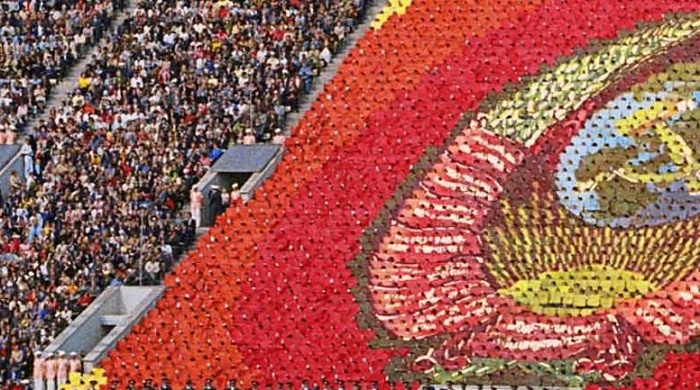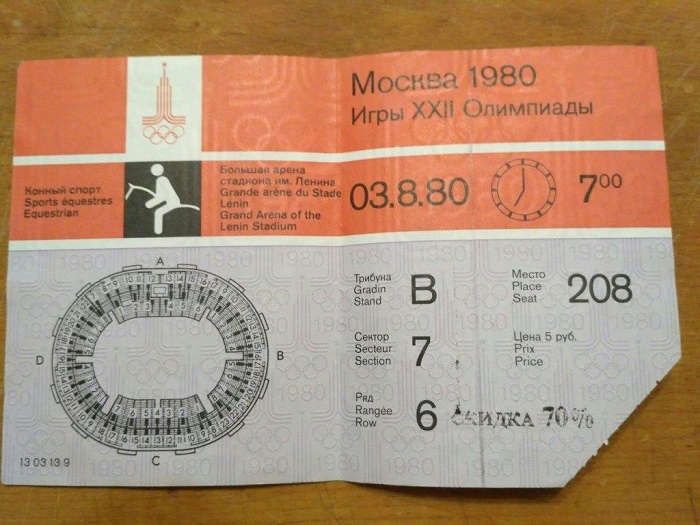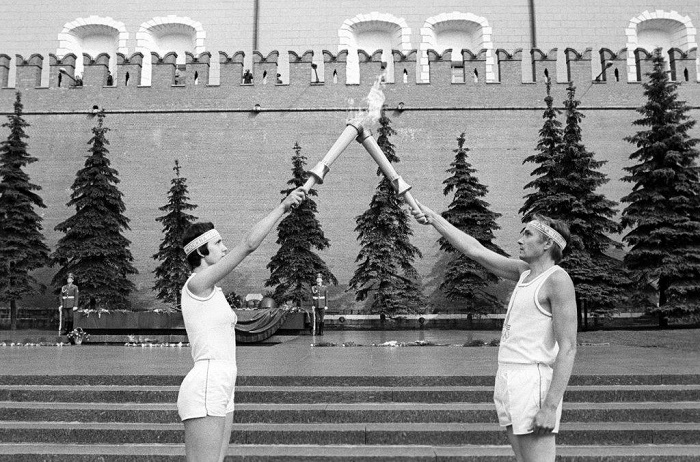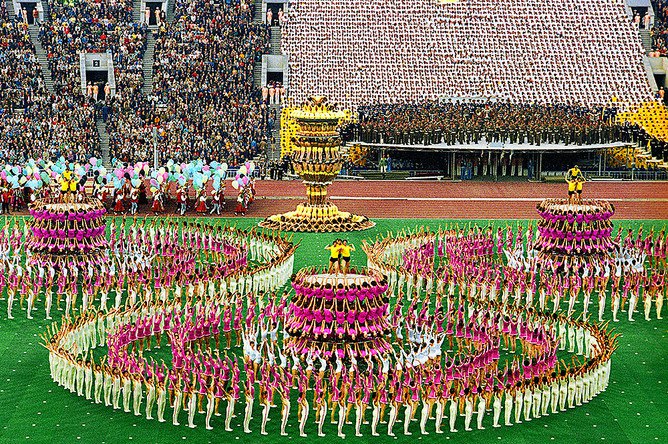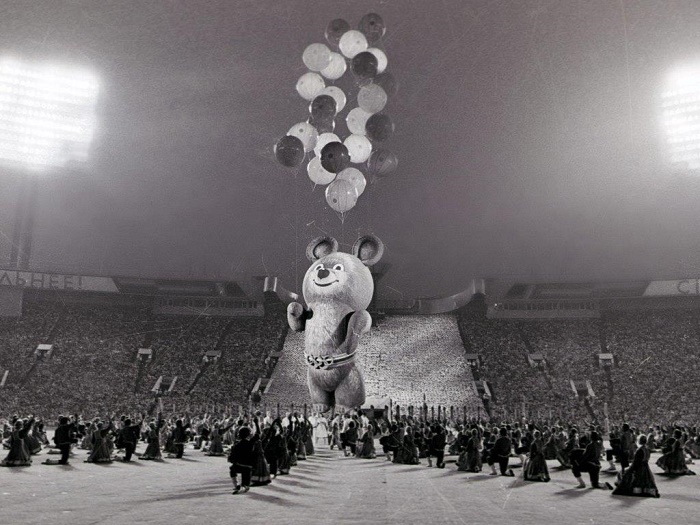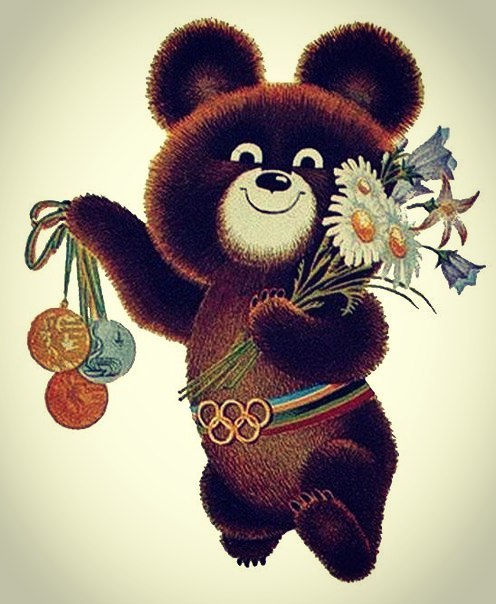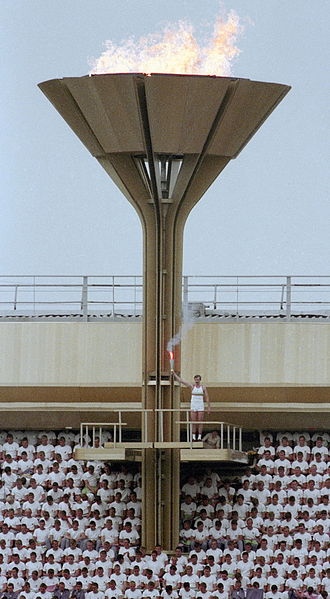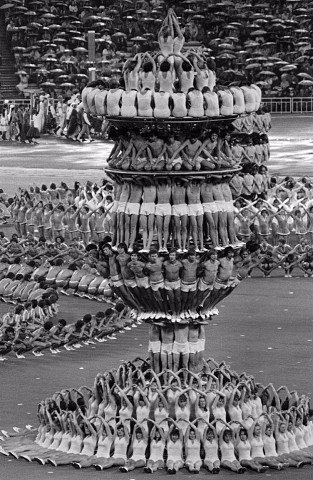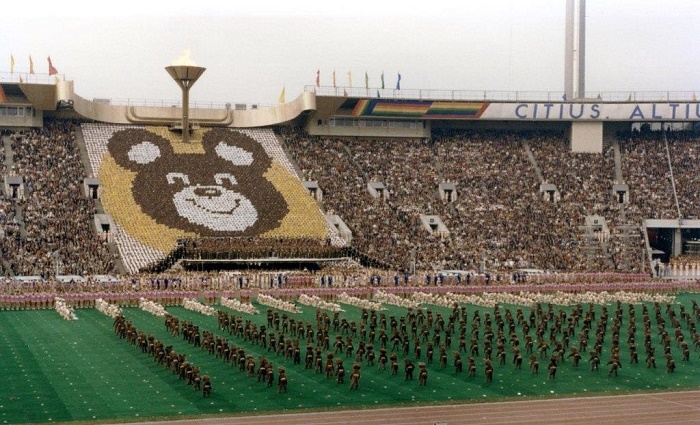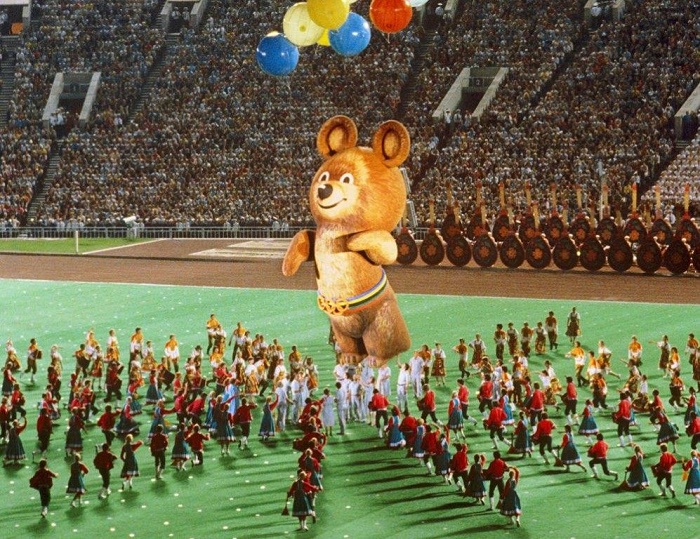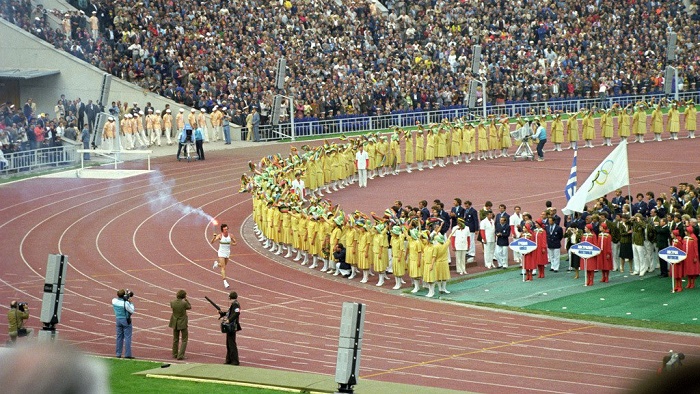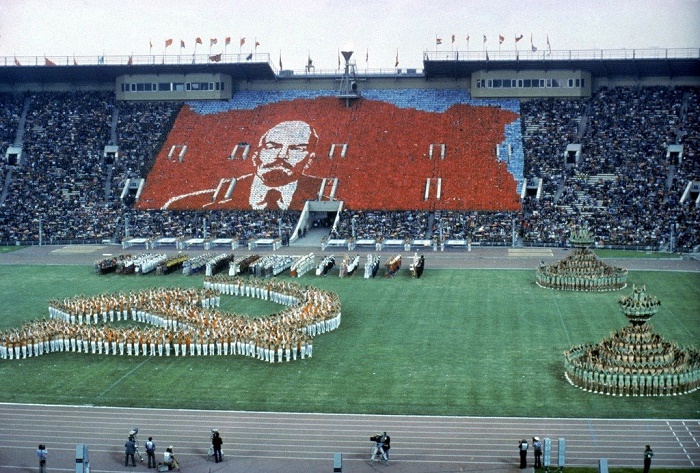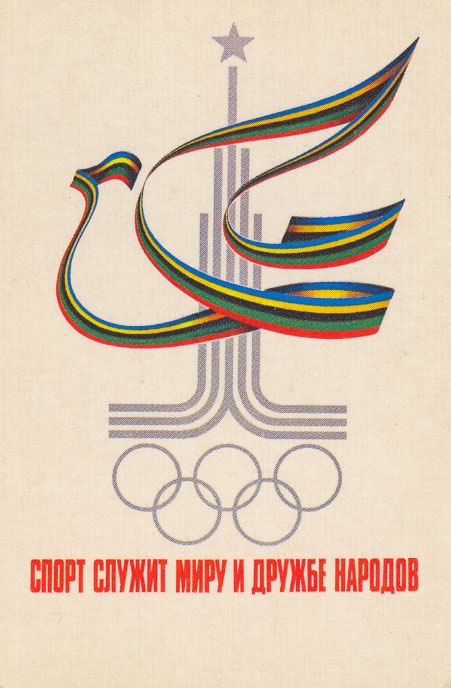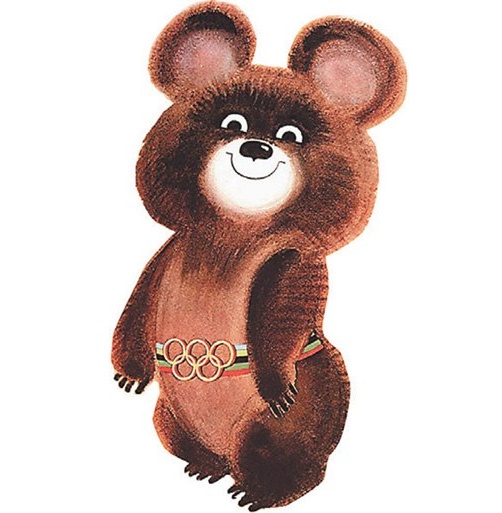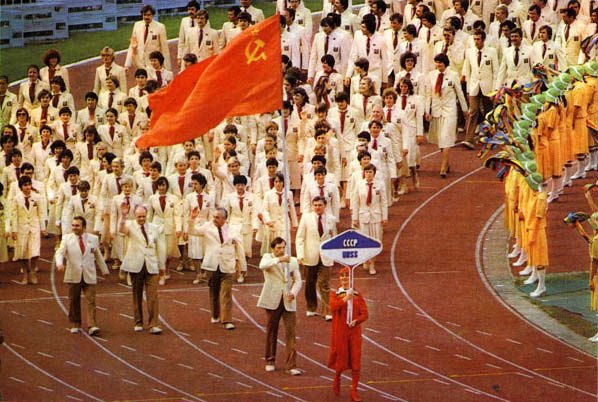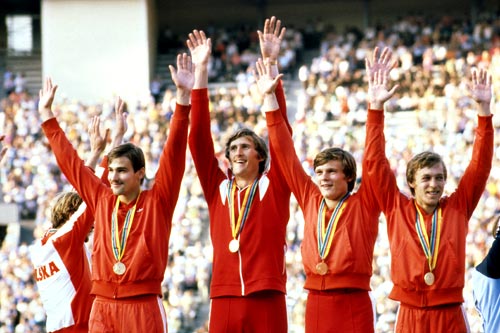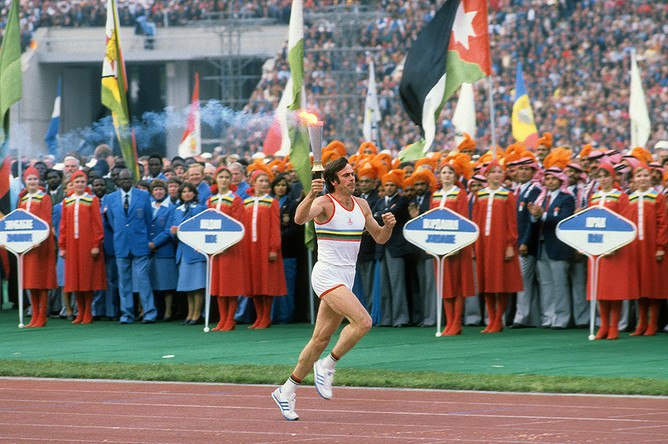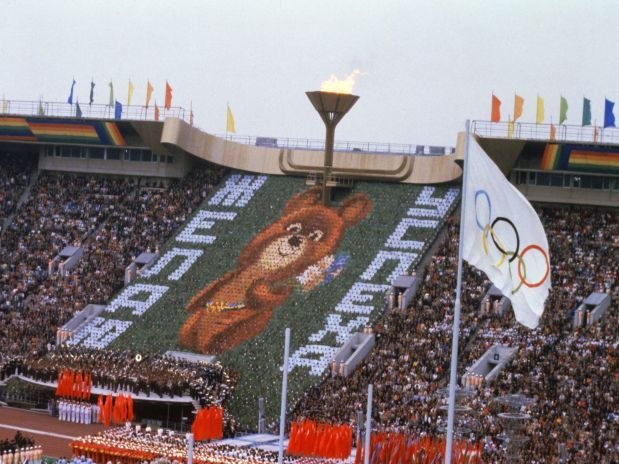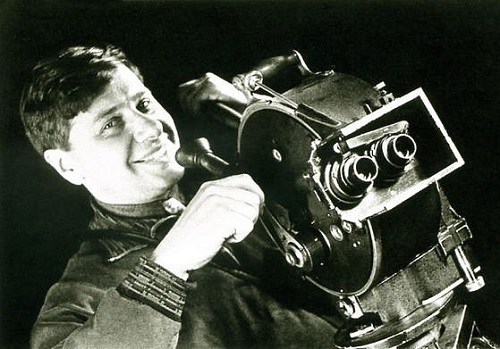XXII Summer Olympic Games in the Soviet Union

The mascot bear Mishka. Closing ceremony. XXII Summer Olympic Games in the Soviet Union. 1980, Moscow
XXII Summer Olympic Games in the Soviet Union
37 years ago, on July 19, 1980, the XXII Summer Olympic Games opened in Moscow. For the first time, The Olympics took place in a socialist country. According to the decision of the International Olympic Committee (IOC), Moscow became an Olympic city. The emblem of the Olympiad became a stylized image of the Spasskaya Tower of the Moscow Kremlin with a star in the form of upward-directed lines denoting athletic tracks. At the base of the tower there were five intertwined Olympic rings.
And the mascot of the Moscow Olympic Games became Bear Misha, created by the Soviet artist Viktor Chizhikov. Initially, due to the lack of Internet in those years, citizens discussed the applicants in the TV program “In the world of animals.” According to the results of the survey, Misha was ahead of all. Among the offers were the moose and squirrel, swan and sable, cock and bison, and at the same time folkloric characters – Petrushka, Matryoshka and Hunchback-Humpback. Noteworthy, Misha became the first mascot in the history of the Games that visited space – on June 15, 1978. It flew aboard the Soyuz-29 spacecraft along with Vladimir Kovalenko and Alexander Ivanchenkov.
However, at the Moscow Olympics there was also another mascot. Thus, the symbol of competition of yachtsmen in Tallinn became puppy named Vigri.
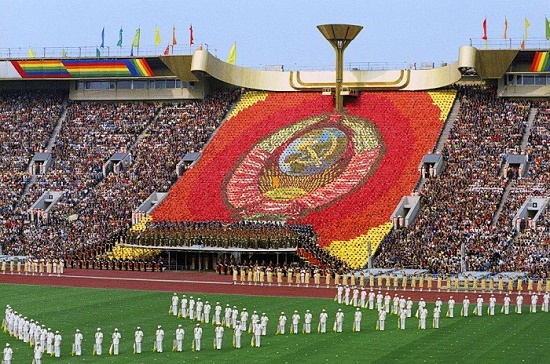
Moscow Stadium, bright installation with the emblem of the USSR. XXII Summer Olympic Games. July 1980
The program included 21 Olympic sports. A total of 203 sports disciplines (150 – personal competitions, 53 – team competitions), including 5 new ones (in comparison with the program of the 1976 Olympic Games). Olympic competitions except Moscow took place in four more cities: in Tallinn – sailing regatta, in Leningrad, Kiev and Minsk – group tournaments of football teams.
In accordance with the General Plan for the Development of Moscow (and also other cities where the competition was supposed to take place), in 1975-1980 appeared several sports and other facilities. In all, specially for the Olympics 78 more objects appeared.
At the opening ceremony (rehearsed for the year), out of 80 participants of the Moscow Olympics 16 European teams were not under their flags. Instead, they used the flag of the IOC – a white flag with five color rings symbolizing the five continents. And the team of New Zealand went under the banner of the NOC – a black flag with five white rings. The same was with hymns. During the awarding of athletes, winners from these countries sounded the Olympic anthem “Children of Fortune.”
First, at the Olympic Stadium appeared three-time Olympic champion Viktor Saneev, who brought a torch with Olympic fire to the stadium. After making a circle along the track of the stadium, he handed the torch to a Soviet basketball player, to the 1972 Olympic champion Sergei Belov. Above the rows of the Eastern Stand came an impromptu track of snow-white shields. Belov ran along it, lifting a flaming torch high above his head.
On behalf of all participants, the hero of the Games in Montreal, gymnast Nikolai Andrianov announced the oath of the Olympians, and on behalf of the judges – the famous Soviet fighter Alexander Medved. On the information board of the stadium appeared the image of Soviet cosmonauts Leonid Popov and Valery Ryumin. They, from outer space, addressed with greetings to the Olympians and wished them happy starts. A little later, the General Secretary of the CPSU Central Committee, Chairman of the Presidium of the Supreme Soviet of the USSR Leonid Brezhnev declared the XXII Summer Olympic Games to be open.
One by one, the national Olympic teams followed the stadium’s treadmill, in the traditional march of greeting.
In the dance and sports stories of the opening ceremony, which lasted about 3 hours, over 16,000 athletes, amateur and professional actors participated.
For 15 days the best sportsmen of the world competed in Moscow, Kiev, Leningrad, Minsk and Tallinn.
In general, the organizers approached the preparation of the Games very responsibly, and all the competitions were held at a high level. For the first time in the history of the Olympics, appeared six major sports centers specially built for the Games. Among them – the Olimpic sports complex on Mira Avenue, the Bitza sports equestrian center, the Izmaylovo universal sports hall, the Krylatskoe cycling track, the Druzhba gym in Luzhniki, the football and track and field athletics arena in CSKA, and also the Olympic Village.
During the competitions, sportsmen established 36 world and 74 Olympic records. In the team event, the first place went to the hosts of the Olympics – Soviet athletes – they won 195 medals, 80 of which were gold medals. The second place took the team of the GDR (Eastern Germany), on the account of which were 126 awards (47 gold). And the third place took the national team of Bulgaria (41 medals, 8 gold).
At the very end of the closing ceremony guests and viewers were waiting for a surprise, which everyone still remembers. In the middle of the stadium, grabbing for colorful balloons, a huge Misha floated out. It waved goodbye with his paw and began to slowly rise above the stadium until he disappeared into the sky. Simultaneously with the rise of the bear in the sky, the song of the composer Alexandra Pakhmutova and the poet Nikolai Dobronravov “Goodbye, Moscow” sounded. During the performance of the song many spectators cried.
In fact, this was one of the most beautiful Olympiads in history (in the era of absense of computer technology at the time).
The post published on the materials of Soviet era magazines.
